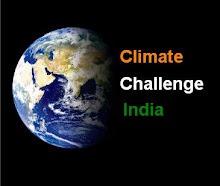Hey! What’s with the southwest monsoon? It was supposed to start a week early this year. I was really looking forward to it. But I was out of the country before the due date. I came back and find that instead of pouring rain, there is a rather clear and silent sky.
Well, we still don’t understand the monsoon system well enough to be able to say whether this is part of the ongoing climate change or not. Or to what extent. For sure, this delay in the monsoon is going to have serious consequences for all of us in some way or other.
The climate change science tells us that if we continue to do things as we have been doing so far (this is called “BAU” or “Business As Usual”), we may well see the monsoon systems become even more erratic and unpredictable. That is just one part of all the things that are likely to happen.
Therefore, we must act and we must do so NOW. If we do, we could perhaps help slow the process of catastrophic climate change. If we continue living in climate-friendly ways, we may be able to live healthier lives because the environment will be able to support life for a much longer period of time without catastrophic changes. This is called ‘sustainability’.
The nations of the world have agreed that climate change is a serious issue affecting all of us. They are locked in a debate on what each country’s responsibility is in causing the damage to the environment, who should do what, how much, how fast, at what cost, who will pay for it, and so on.
In December 2009, there is a gathering of all nations’ representatives at the Danish capital, Copenhagen to negotiate a global agreement on action to make life sustainable for all of us.
[Source: http://www.lib.utexas.edu/maps/cia08/denmark_sm_2008.gif ]
The negotiations have not been going well. (More on this later)
Meanwhile, what of us? Can we take any action that could make a difference for the better? Huge industries and our own desire for products and services that pollute heavily have been having (and continue to have) serious impacts. What difference can the actions of an individual or a local group of a dozen or a few hundred thousand in the world make? Won’t our efforts be wasted?
This is an understandable question. The answer lies in three parts:
- We have to educate ourselves with the issues relating to climate change. We must learn the science, geography, politics, economics, morality, ethics, etc. relating to climate change. Learning the vocabulary of climate and climate change is an integral and important step.
- With our individual efforts to change our lifestyles and habits, we can persuade others to do likewise. This can help spread greater awareness and better living among more and more people.
- As groups, we can put pressure on our governments to work hard to develop a fair and practical agreement with the world’s nations as soon as possible.
At CSM, I am developing our outreach programme through which we will be reaching many students and educators throughout India. We will partner with you – the students and educators – and institutions to help you make a difference. We will soon be launching a series of climate-change-related learning activities for you. This blog will get the conversation started. I fervently hope that soon your studies at school will connect very positively with your life in ways that will thrill you and empower you.
Together, we can both make a difference! If you haven’t already done so, take the Climate Challenge India pledge.
It is great to begin this blog series today, 24 June 2009. It is my birthday gift to myself; one that I am thrilled to share with all of you.
If you are a student, educator, education official, head of a school, researcher, etc. and want to join us in this effort to build awareness, get in touch with me at chandra@csmworld.org
“Shabhaash, India!”
India's solar energy entreprenuership



No comments:
Post a Comment